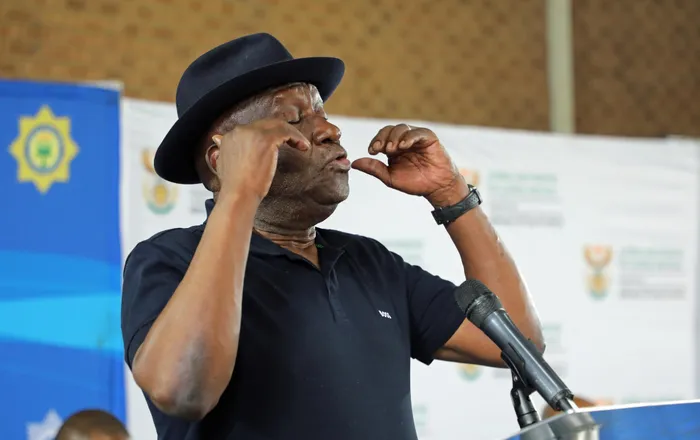Reform police management to address crime

Police Minister Bheki Cele has shown himself to be big on bluster but small on the innovations required to do policing in the modern era. Picture: File
Just how seriously President Cyril Ramaphosa takes crime in the country was clearly demonstrated by his Cabinet reshuffle, which did nothing to inspire any confidence that the situation will change any time soon.
The most recent crime statistics (for the last quarter of 2022) indicated increases in murders and rapes (by 10% each) and a nearly 25% increase in attempted murders over the corresponding period in the previous year.
And nearly 70 cars are being stolen in the country every day.
Quite how Bheki Cele held on to the police minister’s portfolio in spite of presiding over such depressing, and progressively worsening, numbers is a feat deserving of its own commission of inquiry.
What it does expose is Ramaphosa’s lack of decisiveness and leadership, the latter being a word the ANC is increasingly unfamiliar with.
It is understood that social and other factors, including unemployment and poverty levels, all beyond the control of the police, will have an impact on crime, but good policing can still have a positive effect on certain crime categories. However, this is predicated on good leadership.
Cele, on the other hand, has shown himself to be big on bluster, but small on the innovations required to do policing in the modern era.
He and the ANC are keen to add officers to the police service, “visibility” being a cornerstone of their crime-fighting strategy, but the SAPS’s numbers grow on an almost annual basis without a commensurate decrease in crime.
Instead, we need an institutional reform of the service, especially of the top management, and better recruitment and training systems to ensure the hiring of quality personnel. A matric certificate should not be the minimum requirement to join the service.
In addition, the police ministry desperately needs a political leader who not only understands the country’s crime landscape, but is also capable of harnessing modern technology to address it. Cele is not that person.
The Independent on Saturday